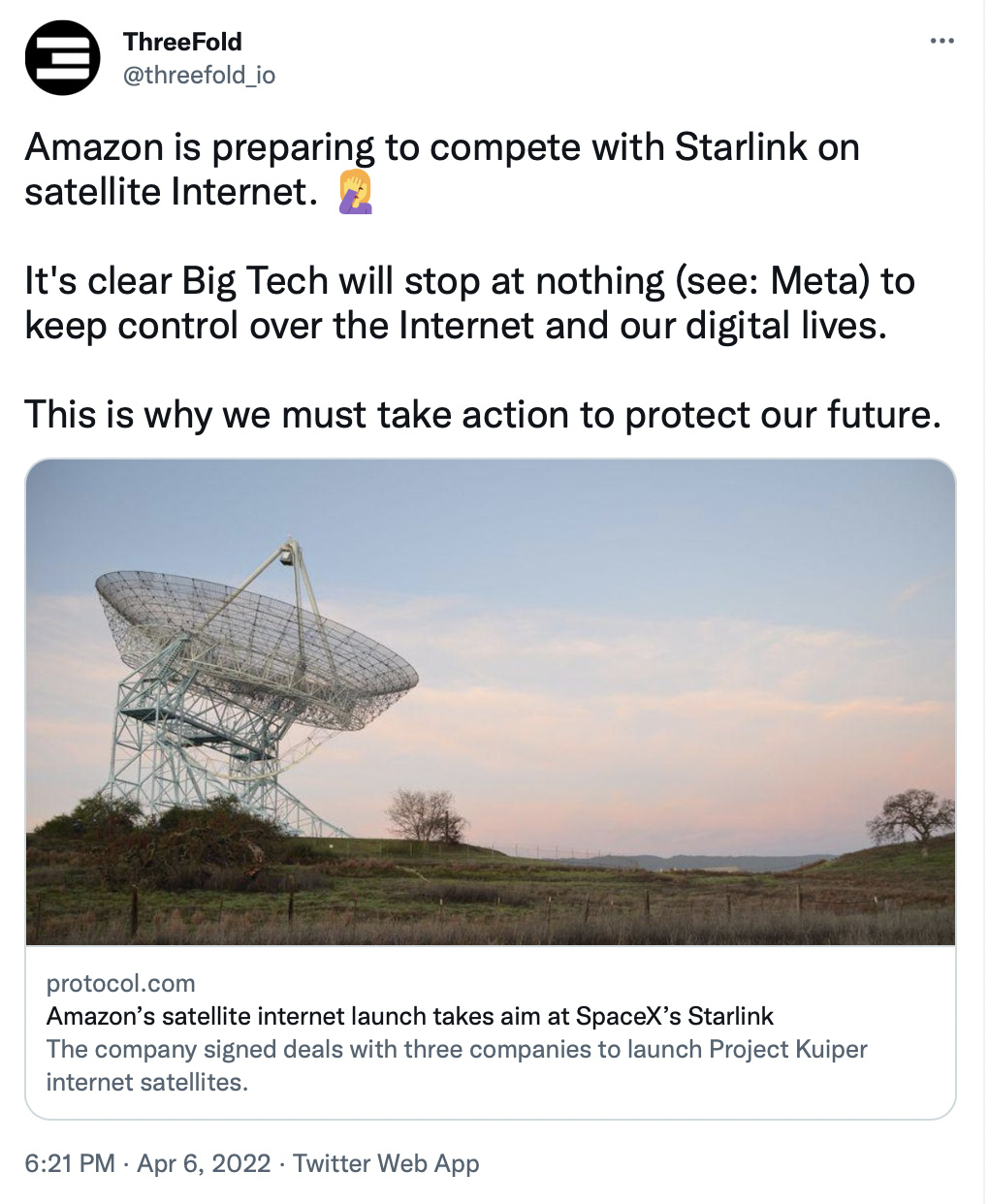Amazon is making moves to challenge Starlink when it comes to satellite Internet. We tweeted about it yesterday and you can find more information here.

On top of the obvious problems around space junk, this is yet another indicator that Big Tech will continue to do whatever they can to maintain control of the Internet.
As @Sacha said to me yesterday, “This is scary. If Amazon has a majority of the satellites, today’s Internet would officially turn into a monopoly.”
Some people have brought up the fact that ThreeFold itself relies on big Internet providers in order to scale the grid. And while this is true for now (Rome wasn’t built in a day), I wanted to also clarify a few things related to this point and open up a discussion:
- ThreeFold is focused on Internet capacity, because this is where data resides. It’s essential we move away from the centralized data center model and take back control of our data and our digital lives.
- The networking / connectivity side is also important but it’s a bit of a different story. Connectivity relies on cables, satellites, and base stations, most of which is currently owned by private companies.
- We do have a partner in Kleos that offers last mile connectivity and we will need to work with them and future partners to bring connectivity by the people.
- Someone on Twitter recommended we check out SpaceChain (we’ve reached out) and others have theorized around a Helium partnership. You never know!
- Also, related to this topic and worth checking out is our Planetary Network, a peer-to-peer end-to-end encrypted global network, providing universal connectivity between nodes, ThreeFold Grid deployers, and solution users
What do you make of this news? What are your thoughts on bringing connectivity by the people, for the people?
